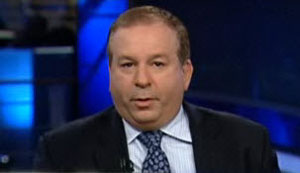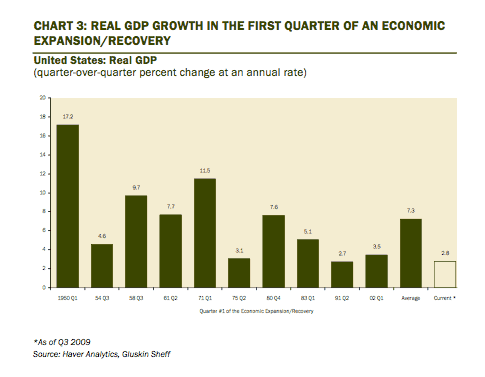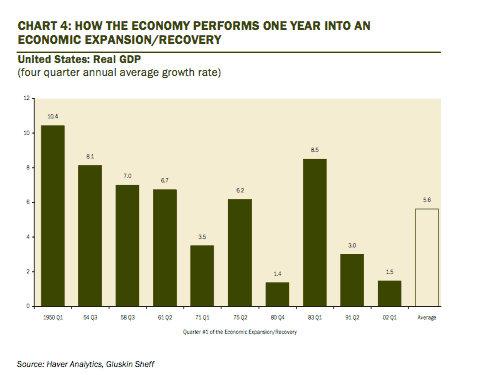 David Rosenberg – who completely missed the March lows and has been persistently bearish all the way up – believes this is not a plain-vanilla recession. He argues we are looking at depression here.
David Rosenberg – who completely missed the March lows and has been persistently bearish all the way up – believes this is not a plain-vanilla recession. He argues we are looking at depression here.
According to Rosie, this is more than just about a mathematical contraction in GDP. “Depressions”, he says, “are associated with credit contraction and asset deflation..In recessions, social change does not occur. In depressions, they do. Hence the fact that in Halloween, the reason why sales-related items were so tepid was because 30% of families made their own costumes. ”
More on the Depression
Last week, we received some classic guffaws when we responded to whether or not the recession has ended with this: “We’re not convinced, but even if it is statistically over, the depression is ongoing”.
We were reprimanded by former Fed Governor Mishkin for breeding “fear”. The eyes were rolling among the Squawk Box crew and we were told to tell that to Mr. Market, who has rallied more than 60% from the March lows (“artificial” lows, we were told off camera). After all, Mr. Market is so adept at calling the economy – like the peak in late 2007, literally weeks ahead of what the polite economics crowd dubs “The Great Recession”; or how adept Mr. Market was in calling the 2001 tech wreck; or the three failed attempts at predicting recovery over the past two years. Mr. Market’s ability at calling the economy, is shall we say, a tad spotty.
In fact, even with the massive amount of stimulus in modern history, all the economy could do was muster up a 2.8% annualized growth rate in Q3. If that number stands, it will go down as just about the poorest bounce off a recessionary environment on record. History, by the way, shows that 80% of the time, the opening quarter of the recovery ends up being a pretty good predictor over the extent of the economic pickup we see in the year that follows. So, that near 5% GDP growth backdrop being projected by Mr. Market right now looks to be more than just a tad dubious.
Now, as for calling this a ‘depression’, it is an attempt at providing a reality check to Wall Street research forecasts of a robust recovery. Practically everyone thought the worst was over in 1930 but all we were in at that time was the classic phase 2 of the triple-waterfall — the “reflex rally” that comes on the heels of the “initial sharp down” to only then be followed by the long and drawn out decline to the fundamental low. The Great Depression didn’t even receive that label until 1934 and by then we were well over a year past the lows in both real GDP and the stock market.
But it was a treacherous environment for the rest of the decade and despite seven years of huge stimulus — and resource-misallocation distortions from the FDR New Deal — the unemployment rate still finished off the 1930s at 15%; the CPI was still deflating at a 2% annual rate; nominal GDP had still yet to re-attain its 1929 peak; and the next secular bull market in equities did not commence for another 15 years. Income strategies worked best even after the S&P 500 hit bottom; and gold doubled in Sterling terms. Equity rallies came … and they went. Volatility reigned. What goes around comes around.
While this contraction seems to have had it all, shrinking GDP, a massively battered stock market, soaring foreclosures, shaky banks, we are inclined to say that this has been, if not a great recession, one nasty downturn. But certainly not Depression. Contrary to the widespread view that the current contraction is the worst in 70+ years, new claims expressed as a percentage of covered employment in the peak week of 2009 were only 0.49%, as compared to much higher rates of 0.84, 0.73, and 0.77 in the recessions of 1973-75, 1980, and 1981-82 respectively.
- Bulenox: Get 45% to 91% OFF ... Use Discount Code: UNO
- Risk Our Money Not Yours | Get 50% to 90% OFF ... Use Discount Code: MMBVBKSM
Disclaimer: This page contains affiliate links. If you choose to make a purchase after clicking a link, we may receive a commission at no additional cost to you. Thank you for your support!





“seven years of huge stimulus”
Where on earth do you get this ridiculous statement? The reason the Depression lasted as long as it did, was because there was NOT “seven years of huge stimulus.”
Do you mean corporatization and looting by elites via Mellon’s “liquidation?” THAT is what was carried out during the Depression, by both Hoover and Roosevelt. There was NO change of fundamental policy between administrations.
No wonder you make erroneous calls. You are ignorant of history.
And you’re calling this one wrong, too. “Liquidation” was never eliminated as the fundamental policy of the U.S. government. Do you seriously think the powerful in this country (and abroad) would allow any change from liquidation, especially since, during even the worst of the Depression, 75% of workers were still employed?
And liquidation is exactly what is going on now, just as if Andrew Mellon were still at Treasury. And you won’t get ANY variance from liquidation until underemployment among those with a Bachelor’s degree or higher reaches 40%.
Grow up.